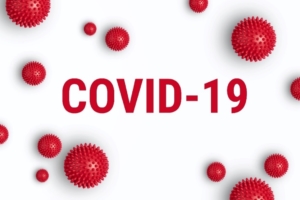How Condominiums and HOAs can mitigate the virus from spreading
By: Carolina Sznajderman Sheir, Esq.
Alessandra Stivelman, Esq.

It is estimated that 70 percent of Floridians either live in a community association such as a condominium or homeowner’s association. With residents living in relatively close quarters to their neighbors and sharing common areas, it’s understandable there is a rising concern and heightened anxiety about contracting the COVID-19 virus.
The World Health Organization (WHO) has now identified the COVID-19 virus as a global pandemic and certain precautionary measures must be implemented.
On March 9, 2020, Governor Ron Desantis issued Executive Order Number 20-52, declaring a state of emergency in the State of Florida. This declaration activates certain Association Emergency Powers pursuant to Fla. Stat. 718.1265, which grants special powers to Association Boards which are reasonably necessary to protect the health, safety, and welfare of the association and the unit owners and the unit owners’ family members, tenants, guests, agents or invitees. While the Association Emergency Powers statute was likely enacted with natural disasters such as hurricanes in mind, the threat of a pandemic may certainly cause disruption in the operations of Associations. The statute does not specifically address powers that may be exercised during the threat of a pandemic. However, amongst the special emergency powers that are available, the Board of Directors has the power to conduct board meetings and membership meetings with notice given as practicable, the power to cancel and reschedule association meetings, as well as the power to implement a disaster plan before or immediately following the event for which the state of emergency is declared.
Many associations are considering administrative precautions, such as holding telephonic/televised meetings in lieu of in-person meetings, as well as adopting electronic voting procedures in an effort to avoid exposure to the threat of this virus.
At Eisinger, Brown, Lewis, Frankel & Chaiet, P.A., the safety and wellbeing of our employees and clients is of the upmost importance. We are implementing internal and external precautionary measures and all planned educational events previously advertised are postponed until further notice.
As a full-service law firm servicing more than 850 community associations throughout the state of Florida, we offer the following suggestions for community associations to help mitigate the spread of the virus:
- Continue to monitor developments and follow the guidance of public health officials at the Center for Disease Control (CDC) and the Florida Department of Health which are updating their websites with the latest information.
- If there is a scheduled community association social gathering, consider postponing it.
- For any upcoming Board meetings, attempt to hold them virtually by hosting an online broadcast and invite participants to join by phone or Skype. If unable to broadcast live, record the meeting and post online soon thereafter.
- Implement enhanced cleaning and sanitizing of all common areas of the property, especially any hard, touchable surfaces in lobbies, elevators, gym, pool, clubhouse and public bathrooms.
- Provide hand sanitizer stations and wipes in the lobbies for use by all residents and guests.
- Continuously inform contracted staff and regular visitors of best practices.
- Practice social distancing and urge residents who have fever or other signs of illness to self-quarantine.
- Practice good hygiene. Wash your hands frequently. Cover your nose and mouth if you have to sneeze or cough. And use hand sanitizer with at least 60 percent alcohol content. Please stay home if you are sick.
- If you need to see a doctor, work with a medical professional to discuss transportation options. Per the CDC, if you have been diagnosed with COVID-19 or suspect you may have it, you should not use ridesharing, public transportation, or taxis.
- Prepare, don’t panic.
Carolina Sznajderman Sheir is a partner at Eisinger, Brown, Lewis, Frankel & Chaiet, P.A. and her practice focuses on real estate law, community association law, commercial litigation and developer representation. She can be reached at [email protected] or 954-894-8000 ext. 238.
Alessandra Stivelman is a partner at Eisinger Brown Lewis Frankel & Chaiet, P.A., Board Certified Specialist in Condominium and Planned Development Law and is an AV-rated attorney. She focuses her practice on community association and real estate law and can be reached at [email protected] or 954-894-8000 ext. 304.
Eisinger, Brown, Lewis, Frankel & Chaiet, P.A., is a full service Florida law firm focusing on community association law, real estate law, developer representation, commercial litigation, corporate law, insurance law and estate planning. For more info visit eisingerlaw.com
